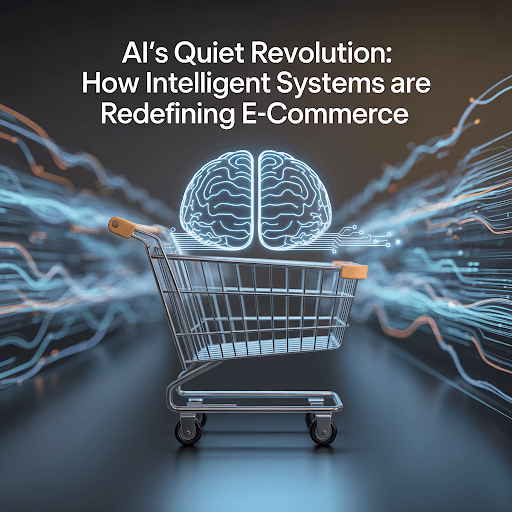
In the modern digital world, Keshav Agrawala researcher deeply engaged in the evolving intersection of artificial intelligence and digital commerceexplores groundbreaking innovations reshaping online shopping experiences. His insights highlight how AI is transforming every stage of the customer journey, creating an interconnected and intelligent e-commerce ecosystem.
The New Dawn of Digital Shopping
E-commerce is no longer defined by static websites and simple transactions. Instead, artificial intelligence (AI) is catalyzing a shift toward deeply personalized, dynamic online shopping experiences. Today’s digital commerce journey is guided by algorithms that adapt in real-time to each shopper’s preferences, browsing behaviors, and contextual signals. This new paradigm, as articulated by him, has elevated customer engagement, increased conversion rates, and reimagined how products are discovered, evaluated, and received.
Personalization: The Core of Front-End Intelligence
Modern e-commerce thrives on hyper-personalization powered by advanced AI. These systems analyze numerous data points such as past purchases, device type, and time of day to customize recommendations, search results, and content layouts. This approach has boosted conversion rates by up to 45% and increased order values by 40% compared to traditional methods. AI platforms can update thousands of product suggestions per minute based on real-time user behavior, ensuring each shopper’s journey is unique.
Natural language-driven predictive search now interprets complex queries with 95% accuracy, reducing search abandonment and improving product discovery. AI chatbots and virtual assistants, resolving 85% of common questions independently, enhance user support, especially on mobile devices. Today, 76% of online shoppers expect personalized experiences as the norm, making front-end intelligence crucial for modern retail success.
Smarter Transactions: Security and Optimization
AI is transforming online transactions by optimizing pricing and promotions using over a thousand variables, boosting revenue by 8.4% while cutting unnecessary discounts. Fraud prevention advances with AI-powered layers like behavioral biometrics and device fingerprinting, achieving nearly 100% accuracy, reducing fraud and false alarms for a smoother customer experience. Predictive analytics also identifies potential cart abandonment, allowing real-time adjustments that lower abandonment rates and increase successful transactions. Together, these innovations enhance security and maximize revenue efficiently.
Fulfillment and Logistics: The Rise of Autonomous Operations
AI is revolutionizing logistics and fulfillment with smart warehouses using computer vision, robotics, and deep learning, achieving 95% inventory accuracy and faster picking and packing. Order processing times have fallen by 65%, and costs have fallen by 31%. Autonomous robots boost productivity and safety, while predictive delivery and route optimization speed up shipments and lower emissions. AI proactively monitors risks, resolving issues before impacting customers, enhancing reliability even during major disruptions.
Beyond the Sale: Intelligent Post-Purchase Support
After the sale, AI continues to deliver value through advanced virtual assistants and context-aware support systems. These systems can resolve most customer inquiries within seconds, lower operational costs, and even detect emotional cues to escalate complex issues to human agents when needed. For returns, AI-driven systems anticipate reasons and streamline processing, converting what was once a pain point into an opportunity for loyalty building. Predictive maintenance and follow-up communications further enhance customer retention, boosting repeat purchases and overall satisfaction.
The Road Ahead: Challenges and Potential
Despite its promise, integrating AI into e-commerce remains a significant challenge. Data quality, legacy system compatibility, and ethical considerations especially around privacy and algorithmic bias require ongoing attention. However, as technologies like multimodal AI, edge computing, and federated learning gain ground, the distinction between “AI-enhanced” and traditional e-commerce will vanish.
In conclusion, Keshav Agrawal concludes that the future of digital commerce hinges on balancing rapid technological innovation with robust ethical frameworks and a continued focus on the human element. As research and practice evolve, AI is set to become the silent engine powering a more responsive, inclusive, and intelligent online marketplace.
-
Malaika Arora shared such pictures wearing a deep V-neckline dress at the age of 51, fans were left sweating

-
Ration Card E-KYC: Do this work immediately in ration card, otherwise you will not get free ration

-
Telangana CM blames KCR for facilitating AP’s Banakacherla project

-
Five assembly seats in focus as bypoll voting underway in 4 states

-
England Batter Ollie Pope Extends World Record During One-Off Test Against Zimbabwe
